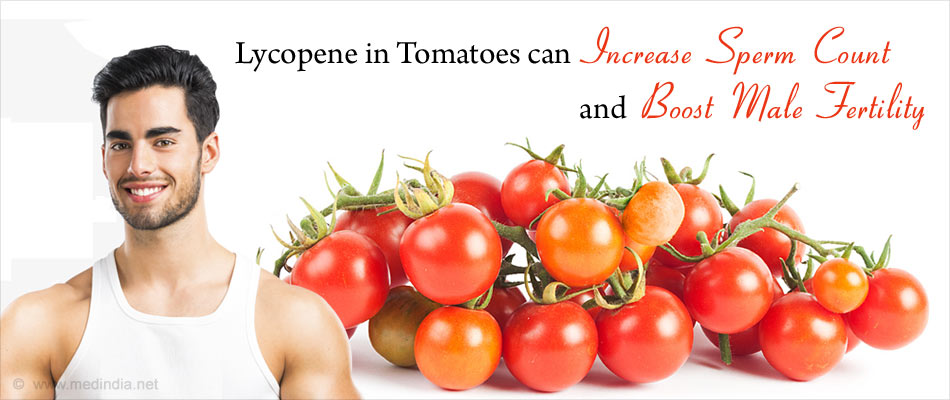
- Infertility affects 1 out of 6 couples, of which half the cases are due to poor sperm count or quality
- Tomatoes contain lycopene, an antioxidant which may boost male fertility by combating oxidative stress that causes poor sperm count.
- A study is presently underway to determine the effect of increased blood lycopene levels on sperm production.
In this study, researchers plan to take up a sample of 60 subjects between the age of 18 years to 30 years. Half of these participants shall be randomly selected and administered XY Pro, over-the-counter lycopene capsules. The other half shall receive placebo (dummy capsules).
XY Pro has been deliberately selected as it is proven to have a better absorption than other lycopene supplements. This study shall be conducted as a double-blind study (neither the participants nor the researchers shall know who gets lycopene and who gets the placebo) to avoid bias. The blood lycopene levels and sperm count shall be measured at the beginning of the 12- week study, once mid-way and then at the end of it.
“Production of sperms takes 3 months. The study will tell us if lycopene improves the quality of sperm already in development by reducing DNA damage and whether it produces an overall increase in the number of mature sperm overall,” said Allan Pacy, a professor of andrology at the University of Sheffield.
Oxidative Stress Causes Male Infertility
Lycopene is a carotenoid which imparts the tomato its red color. Carotenoids are only found in fruits and vegetables and are not synthesized in the human body. Lycopene is however found in the seminal fluid and dietary supplementation increases its levels quite significantly.
Lycopene acts as an antioxidant in the body by two mechanisms:
It scavenges the free radicals - Neutralizing the free radicals results in reduced oxidative stress. This reduces the damage to the cell membrane and DNA molecules and improves sperm motility as well as quality.
It enhances antioxidant agents - Lycopene also acts indirectly and enhances the level of antioxidant enzymes which reduce oxidative stress. It also decreases the transcription (replication) of pro-inflammatory factors.
The reduction of damage by oxidative stress and the improvement in general immunity with lycopene supplementation results in higher chances of a normal sperm fertilizing the egg. Certain studies have revealed the beneficial effects of lycopene on reducing the growth of prostate cancer and the growth of prostate (benign hypertrophy of prostate). It seems only rational that the nutrient has beneficial effects on sperms as well.
Dr. Elizabeth Williams, a professor at the University of Sheffield said in a press release, “If lycopene has a beneficial effect on the prostate, it is reasonable to think that it might also improve sperm function.”
A lot many medical practitioners already prescribe lycopene supplements due its antioxidant properties. The results of this ongoing study might reveal a new solution to the problem of male infertility.
Source-Medindia












